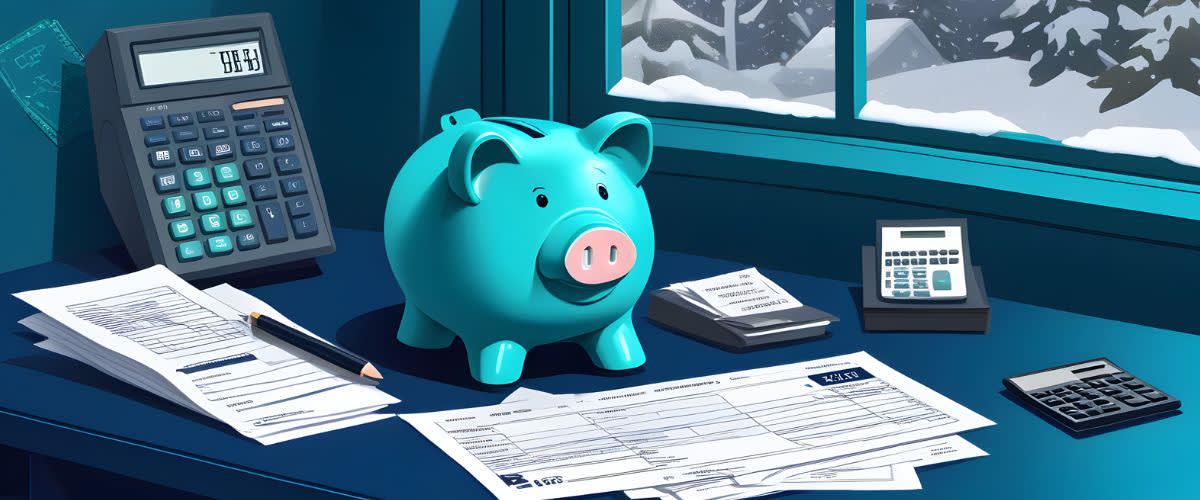Forex taxes: calculating and reporting your profits

it's important to understand the tax implications of this trading to avoid any legal issues. In this article, we'll cover useful information you need to know about Forex taxes.
Are you new to Forex trading and wondering how taxes work in this market? Or are you an experienced trader, struggling to figure out how to calculate and report your Forex gains? Either way, this article is for you. Forex trading can be profitable at times, but it's important to understand the tax implications of this trading to avoid any legal issues. In this article, we'll cover useful information you need to know about forex taxes.
Taxes on Forex trading
When it comes to forex trading, taxes are an important consideration. Profits from this type of activity are subject to capital gains taxes, which can vary depending on your country of residence. It's important to understand that to ensure that you remain compliant with the law and maximize your returns.
In many countries, these profits are considered capital gains and are taxed accordingly. The tax rate can vary depending on the amount of profit you've made and the duration of your trade. In some cases, there may be a threshold for the amount of profit you can make before taxes are applied.
To ensure that you're reporting them correctly, it's important to keep detailed records of your trades. This should include information such as the date of the trade, the currency pair traded, the buy/sell price, and the profit/loss. This information can be used to calculate your capital gains for tax purposes.
It's also important to consider the tax implications of trading forex with a broker based in another country. In some cases, you may be subject to additional taxes in both your home country and the country where the broker is based.
If you're unsure about how to calculate your taxes, consider consulting with a professional accountant or using tax software to help you.
Forex with a Broker you can trust
70 different currency pairs including major, minor and exotics - you’ll always have good options to choose from.


Currency trading abroad
Many forex traders engage in currency trading abroad, which can introduce additional tax considerations. When considering currency pairs outside of your country, you may be subject to taxes in both your home country and the country where the trade takes place.
In some cases, you may be required to pay taxes on the entire amount of your profits in both places. However, many countries have tax treaties in place that aim to prevent double taxation. These may allow you to offset taxes paid in one country against taxes owed in the other.
It's important to research the tax laws in all countries you're trading to ensure that you're compliant with all relevant regulations. In some cases, you may be required to file additional forms or pay taxes on foreign currency transactions.
It is important also to consider the impact of currency fluctuations on your tax liability. When you convert profits from a foreign currency back into your home currency, variations in exchange rates can impact the amount of tax owed. It's important to factor this into your planning and ensure that you're accurately accounting it.
How to calculate taxes on Forex trading
Calculating taxes on forex trading can be complex, but there are several key factors to consider.
- The first step is to determine your tax residency status. Depending on your country of residence, you may be considered a resident or non-resident for tax purposes.
- Once you've determined it, you'll need to calculate your taxable income from forex trading. This typically involves subtracting your trading expenses, such as fees and commissions, from your trading profits.
- In some cases, you may be eligible for deductions or credits that can reduce your tax liability. For example, in the United States, forex traders may be eligible to deduct some trading-related expenses, such as the cost of a trading platform or trading education courses.
- Another key consideration is the impact of currency exchange rates. When converting profits from a foreign currency back into your home currency, fluctuations in exchange rates can impact the amount of tax owed.
It's important to keep detailed records of all your forex trading activity, including trades, profits, and expenses. This will make it easier to accurately calculate your taxes and ensure that you're compliant with all relevant regulations.
A professional accountant or tax advisor can help you take advantage of all available deductions and credits and accurately report your forex trading activity.
Taxes on other markets
While forex trading is a popular market for traders, there are also taxes associated with trading other markets such as commodities, shares, indices, or cryptocurrencies. The tax treatment of these markets varies by jurisdiction and may be subject to different tax rates and regulations.
Commodities trading, for example, may be subject to capital gains tax or income tax, depending on the country in which you are trading. Similarly, taxes on shares and indices may also vary by jurisdiction, with some countries offering tax incentives for long-term investors.

The tax treatment of cryptocurrency trading varies widely by jurisdiction, with some countries imposing capital gains tax, income tax, or treating cryptocurrencies as property subject to transfer taxes.

Capitalise on volatility in Forex markets
Take a position on moving Forex prices. Never miss an opportunity.

It's important to research the tax implications of trading in each market you are interested in and to keep detailed records of your trading activity. If unsure, consulting with a professional accountant or tax advisor can also be beneficial to ensure that you understand the tax implications of your trading activity in each market and are taking advantage of any available tax deductions or credits.
Examples of calculating taxes
Calculating taxes on forex trading can be complex, but it's important to do so accurately to ensure compliance with laws and regulations.
Here are a couple of examples of how taxes on this kind of trading may be calculated:
Multiple Trades
Assume that you make several trades in a given tax year and end up with a net profit of $20,000 from forex trading. If your country of residence imposes capital gains tax at a rate of 25%, you would owe $5,000 in taxes on your activity for that year. However, if you had also incurred losses of $5,000 from other trading activities, you could offset this against your profits, resulting in a net profit of $15,000. This would reduce your tax liability to $3,750.

Trading in Foreign Currency
Assume that you are a US resident who trades forex in a foreign currency, such as the Euro. If you make a profit of 5,000 EUR, you will need to convert this into US dollars for tax purposes. Let's say that the exchange rate at the time of the trade was 1.20 USD per EUR. This means that your profit would be equivalent to $6,000.
If you are subject to capital gains tax at a rate of 20%, you would owe $1,200 in taxes on your forex trading activity for that year. However, if the exchange rate had been 1.25 USD per EUR, your profit would have been equivalent to $6,250 and your tax liability would have been $1,250. This highlights the importance of keeping track of exchange rates when trading in foreign currencies.

Final thoughts
Important! Remember that tax laws and regulations vary by jurisdiction and can change over time. So, always stay informed about tax regulations and seek professional advice if necessary. By understanding and following the law, you can continue to trade Forex confidently and efficiently while avoiding any potential legal issues.
Access 70+ Forex currency pairs with low spreads
It's free to join and trade the world's most traded currency pairs like EURUSD, GBPUSD and USDJPY in the form of CFDs. Enjoy competitive spreads from as low as 0.1 pips with a 2023 global award winning CFD broker: Skilling.
FAQs
- Do Forex traders pay taxes?
- Yes, Forex traders are generally required to pay taxes on their profits. Forex trading is considered a business activity, and the profits derived from it are subject to taxation. The tax rates and regulations may differ depending on the jurisdiction. It's advisable to consult with a tax professional to ensure compliance with local tax laws.
- How is Forex taxed?
- Forex is generally taxed as either capital gains or ordinary income, depending on the holding period and the tax regulations of the country. Profits from short-term trades are often subject to ordinary income tax rates, while long-term trades may qualify for lower capital gains tax rates. It's recommended to consult with a tax professional or refer to local tax authorities for accurate information on how Forex is taxed in your jurisdiction.
- How do I calculate my Forex gains?
- Calculating your Forex gains can be complicated, but here's a simplified example. Let's say that you bought 1,000 Euros for $1,200. A few weeks later, you sold the Euros for $1,300. This means that you made a profit of $100. To work out your tax liability, you'll need to determine how long you held the Euros for and whether you've exceeded the threshold for capital gains taxes in your jurisdiction.
- What are the penalties for failing to report Forex gains?
- Failing to report your Forex gains can result in penalties and legal issues. In some cases, you may be required to pay back taxes and interest, and you may even face criminal charges. It's essential to keep accurate records of all your trades and seek professional advice if you're unsure about the tax implications of your Forex activity.
- What tax forms do I need to fill out for reporting Forex profits?
- The specific tax forms required for reporting Forex profits vary depending on your country. In the United States, for example, traders typically use Form 1040, Schedule D, and Form 8949. Consult with a tax professional or refer to your local tax authority's guidelines for accurate information.
- Can I deduct trading losses on my taxes?
- In many jurisdictions, you can offset your trading losses against your trading profits, potentially reducing your overall tax liability. However, the deductibility of losses may be subject to certain limitations and requirements, so it's crucial to consult with a tax professional.
- Are there any tax benefits or advantages for Forex traders?
- Depending on your country's tax laws, there may be certain benefits or advantages available for Forex traders. For example, some jurisdictions offer tax breaks for income derived from long-term capital gains compared to short-term gains. Again, consulting with a tax advisor is recommended.
- Is it necessary to keep records and documentation for Forex tax purposes?
- Yes, it is essential to maintain accurate records and documentation of all your Forex trading activities. This includes trade confirmations, account statements, receipts, and any other relevant documents. These records will be crucial when calculating and reporting your profits for tax purposes.
Not investment advice. Past performance does not guarantee or predict future performance.









